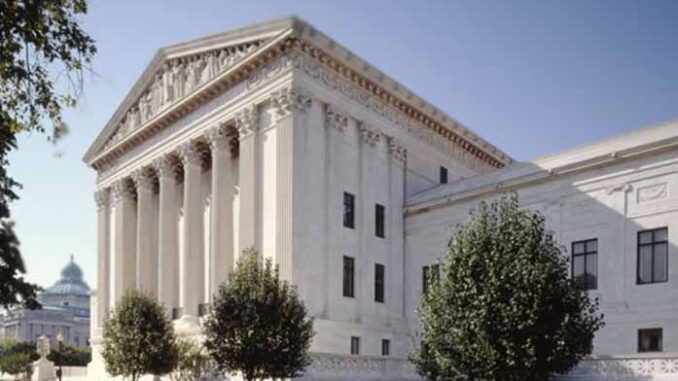
On Friday, January 5th both leaders of the Arizona legislature, President Petersen and Speaker Toma, joined an amici curiae brief arguing that the U. S. Supreme Court must overturn the ruling by the Colorado Supreme Court that would prevent Trump from appearing on the ballot in that state.
Later on Friday, the U.S. Supreme Court did agreed to hear Donald Trump’s appeal of a judicial decision barring him from Colorado’s Republican primary ballot.
To put this issue in perspective, it should be noted that on December 14, a Forbes article stated in part, “President Joe Biden would lose each of the seven battleground states likely to decide the 2024 presidential election to former President Donald Trump if the contest were held today, according to a new poll that shows Biden is struggling to reach key demographics, including Black voters and young people.”
This has led some observers to argue that the Colorado Supreme Court’s decision to ban Trump, which took place on December 19, is an effort by an activist court to head off a possible win of the presidency by Trump.
The Colorado decision was based on their interpretation of the 14th Amendment, which reads in part:
“Section 3
No person shall be a Senator or Representative in Congress, or elector of President and Vice-President, or hold any office, civil or military, under the United States, or under any State, who, having previously taken an oath, as a member of Congress, or as an officer of the United States, or as a member of any State legislature, or as an executive or judicial officer of any State, to support the Constitution of the United States, shall have engaged in insurrection or rebellion against the same, or given aid or comfort to the enemies thereof. But Congress may by a vote of two-thirds of each House, remove such disability.”
The key phrase here is “shall have engaged in insurrection or rebellion.” The Colorado court apparently claims that the J6 incident was just that. Those who disagree are claiming that it is hard to visualize how a ragtag group of people, armed with pepper spray and baseball bats had the intention, much less the capability, of overthrowing the United States government.
The arguments presented by Toma and Petersen go beyond that. They argue that the Colorado Supreme Court overstepped its power because even if the J6 incident was an insurrection or rebellion, it is not up to the Colorado Court to determine that. According to them, the 14th Amendment grants Congress, not the judicial system, the power to enforce its provisions.
